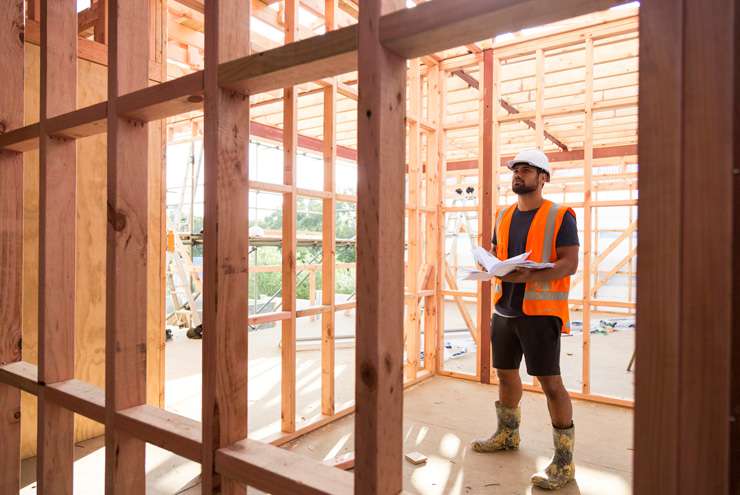Hamilton residents anxious about their neighbours taking advantage of Government’s intensification rules and building three-storey houses in their backyards have been given a two-year reprieve as the city council pushes back.
Hamilton City Council is proposing to alter the “poor and rushed” government legislation in an attempt to further protect the Waikato River by softening the environment impact as part of its Plan Change 12.
The new medium density residential standards became law on August 20 as the Government attempts to remove red tape and allow people to build on one plot three houses up to three storeys high in Hamilton, Auckland, Christchurch, Wellington, Tauranga and Rotorua without needing a resource consent.
But Hamilton City Council believes the rules as they stand will impact its ability to protect and enhance the Waikato River.
Start your property search
Hamilton City Council city planning manager Mark Davey said the council is in a unique position because the qualifying rules around the impact intensification will have on the Waikato River overrides the Government directive making it exempt.
To mitigate its concerns, the council is instead proposing adding extra rules such as requiring each dwelling to be built on a minimum section size of 200sqm.
“We are saying we do want a minimum land size whereas the Government was saying effectively if you can fit something on it’s kind of a free for all,” Davey said.
This could also mean Hamilton’s developments have bigger backyards than some of the other main cities.
The council also wants to add rules around rainwater re-use tanks, drainage and landscaping such as requiring each property has a minimum of two trees planted.
Because the council is proposing adding these new rules, the existing rules requiring developers to get resource consents remain in place until late 2023 or early 2024 while the consultation process is carried out.

The planning rules, which are aimed at speeding up the building process, came into effect on August 20. Photo / Getty images
If Plan Change 12 is approved, then three houses up to three storeys high can be built in the city without a resource consent providing the council’s additional requirements are followed.
The only areas where three houses that are three storeys high won’t be allowed, even under the council’s new proposal, is in the historic heritage areas.
Davey stressed it is not the council’s intention to stifle development in brown fill areas and some of the intensification rules already in place are “very liberal” and similar to what the Government is directing.
Under the proposed plan change, instead of just being allowed to build a duplex, attached houses, terrace houses and standalone houses will also be allowed on one site.
Harkness Henry RMA lawyer Charlotte Muggeridge said Hamilton City Council isn’t the only council approaching the new intensification rules like this, but it is an “interesting way of stopping a permitted activity”.
“That’s what the Government was trying to do is to take out the need for resourcing consenting to make it a faster process, but council have come back on with their overlay and essentially the rules haven’t changed too much.”
Muggeridge felt Hamilton City Council had taken a “more restrictive approach” than some councils.
“I think it’s interesting that council have got an opportunity to seize density and use it as an enabling, but what it appears as it’s come more as a restrictive tool.”
Muggeridge said the rules appear to be “far too technical” for people to take too much notice of yet.
Feedback from her clients has been mixed as some people are supportive of the restrictions because they don’t want three storeys and three units next to them, while developers want to embrace the process in order to speed up the availability of housing and make it more affordable.
Hamilton City Council district plan committee chair councillor Ryan Hamilton said research shows that without controls in place, intensification will have a negative impact on the river.
“Hamiltonians can be reassured that council has their best interests at heart and are doing what they can in this response to lousy, poorly thought through legislation from central government which erodes local democracy.”
The process had been fast and hadn’t given anyone including council much opportunity to be heard, he said.
Submissions on Plan Change 12 are open until September 30.















































































